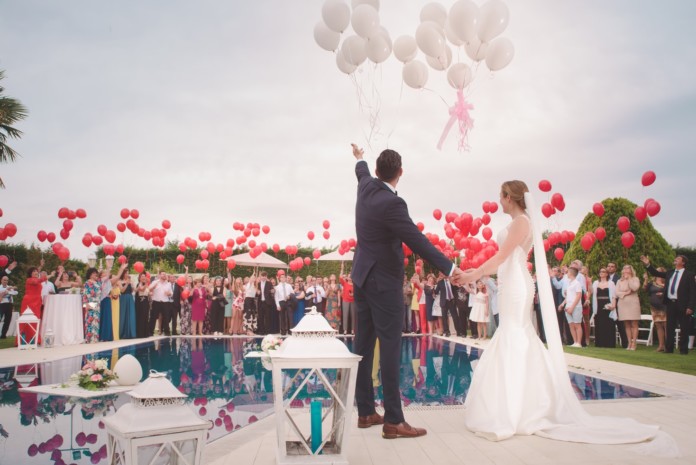Planning a wedding is one of the most amazing experiences you’ll ever have. However, it can also be overwhelming and confusing, especially if you’re planning a luxury destination wedding.
Between navigating the legality of a marriage license to how you’ll get all of your guests to your destination, the list goes on.
Lucky for you, we’ve put together a list of tips to save you stress so you can still have your dream wedding abroad.
- Hire a Destination Wedding Planner
To have your wedding at a dream location, you’ll need to understand what types of questions to ask your venue. Say you want to have a waterfall wedding in another country, but you don’t speak the language or understand the currency. Hiring a wedding planner is always recommended to ensure your big day is flawless.
- Choose Your Location
First and foremost, you have to make a decision as to where you’ll be having your destination wedding. There is a big world of possibilities out there. In order to narrow it down, think about what you want your dream destination to look like. Is it on a tropical beach or in a European city? Is it somewhere adventurous or in a glamorous art gallery? At the end of the day, it’s about what the two of you want for your special day.
- Visit Ahead of Time
Just like you would visit venues before booking, you’ll want to do the same thing wherever you decide to have your destination wedding. By visiting the country ahead of time, it will give you an opportunity to see venues and meet with local vendors in person. Plus, it gives you the advantage of not having to acclimate to an entirely new culture or environment, instead of stressing about it the week of your wedding.
- Consider the Difference in Seasons
Just because it’s winter where you are doesn’t mean you’ll have a snowy wedding where you plan to get married. Consider the difference in seasons. Some popular tropical areas where people want to have their destination wedding have rainy seasons that may put a damper on your big day or will require you to have a plan B in case it rains. Check the local weather for the time of year you are planning to have your wedding.
- Understand the Laws
This is one of the biggest issues people find themselves confronting when planning a destination wedding. They don’t have a proper understanding of the laws and regulations where they’re getting married. Every country is different. You’ll need to be familiar with local permits, what type of documentation is needed for marriage licenses, as well as how it applies back in your home country or state.
- Don’t Expect Guests to Attend
Having a destination wedding means it is going to be more expensive for your guests to attend. For example, someone who travels all the way from the United States to Europe for your wedding will probably want to make the most out of their plane ticket.
This means they’ll stay longer than a day or two. They’ll need to cover accommodations, transportation, food, and other expenses. Plus, they’ll need to take more time off work.
Unfortunately, not everyone has the luxury of being able to take on this endeavour for your wedding. Don’t set the expectation for people to attend. They may not be in a good financial situation or have someone to watch their kids for an extended period of time.
- Consider Skipping a Registry
As mentioned, a destination wedding is incredibly expensive. Because of the added expenses that are put on the guests who do attend your wedding, you may want to consider skipping out on a gift registry. Think of it as a courtesy. It’s a gift in itself that they took the time and money to be able to accommodate your dream wedding.
- Don’t Forget About Wedding Insurance
Just like with any wedding, things can go wrong. But if you’re planning a destination wedding in another state or country, you’ll want to secure wedding insurance. Not only will it provide you with financial protection if something comes up (like a global pandemic), but it will also give you emotional reassurance to make sure you, your partner, and your guests are taken care of in the case of an emergency.




